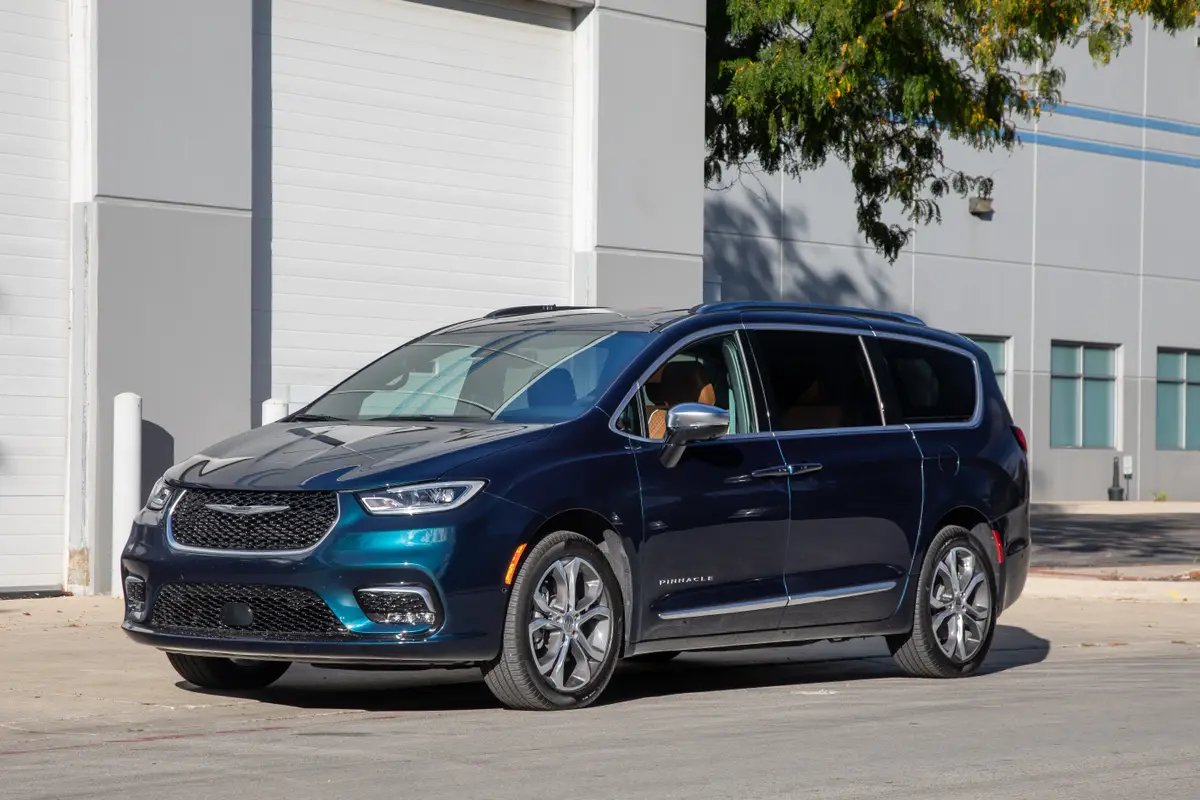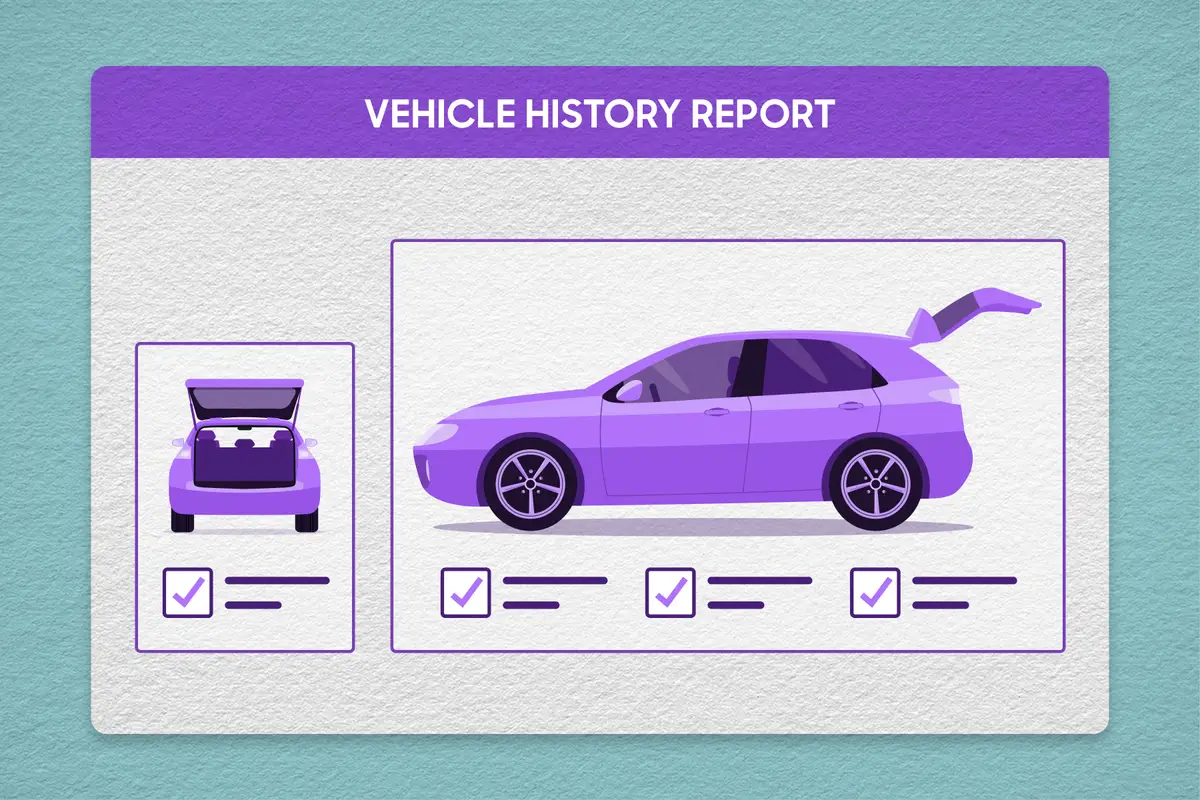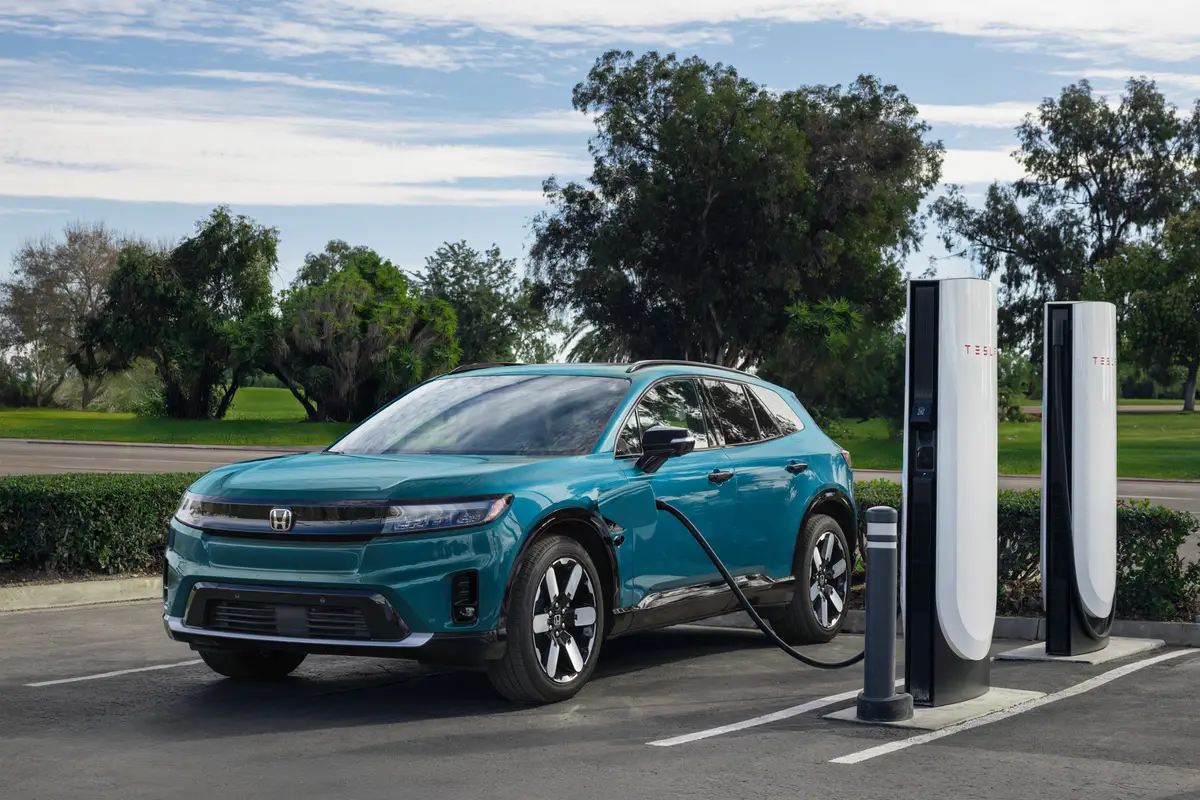2025 Lucid Gravity Up Close: Grounded in Luxury

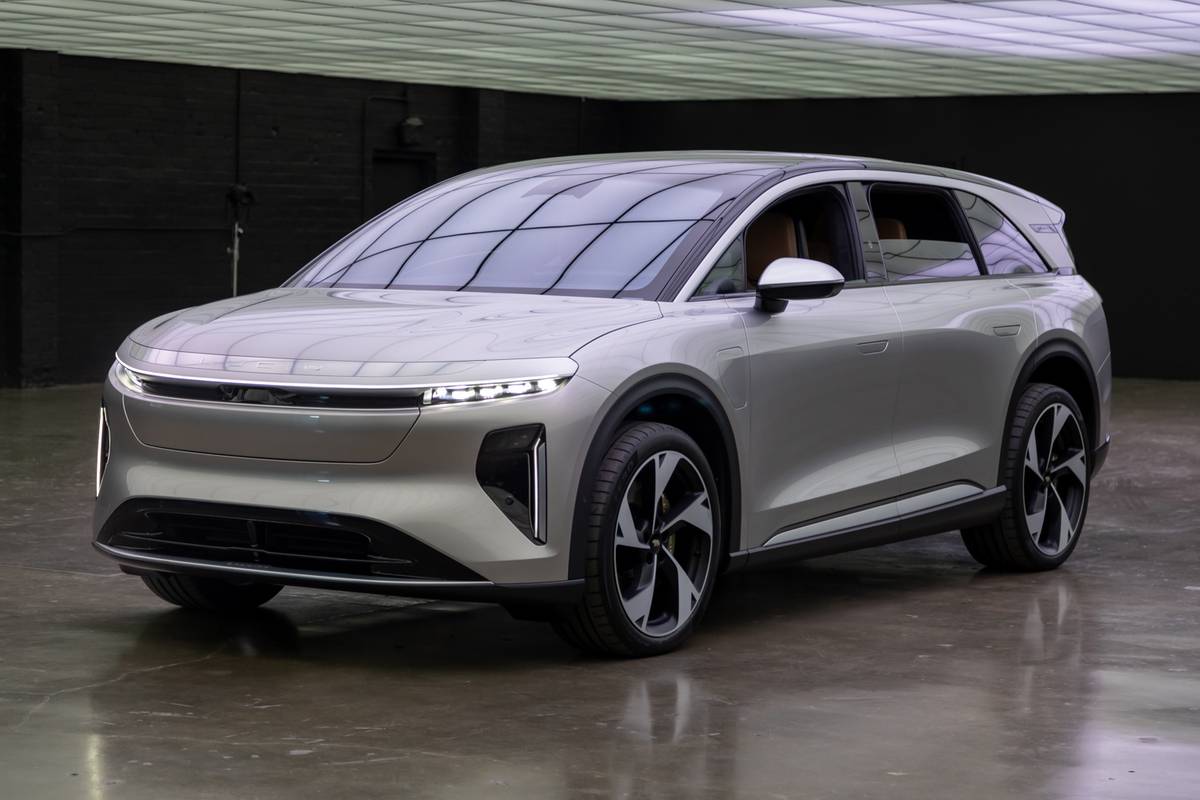
Lucid’s first vehicle was the Air, an all-electric luxury sedan, and its second model, the Gravity, is a mid-size electric luxury SUV that offers two or three rows of seats. The Gravity isn’t set for production until late 2024, according to Lucid, but we were able to see an early version of this upcoming electric vehicle ahead of its 2023 Los Angeles Auto Show debut. With upscale interior appointments, eye-catching technology and some innovative features, the Gravity comes across as an impressive new offering in the class.
Related: More 2023 L.A. Auto Show Coverage
Familiar Design Cues
There’s a lot of the Air in the Gravity’s front-end design — with a few exceptions. It has the same wide brow that stretches from side to side and incorporates an illuminated Lucid graphic, and there’s a slim opening below the brow. The rest of the front end is solid apart from some interspersed inlets on the sides and lower portion. It’s also taller than the Air’s front end due to its SUV proportions, which makes it look a bit more imposing.
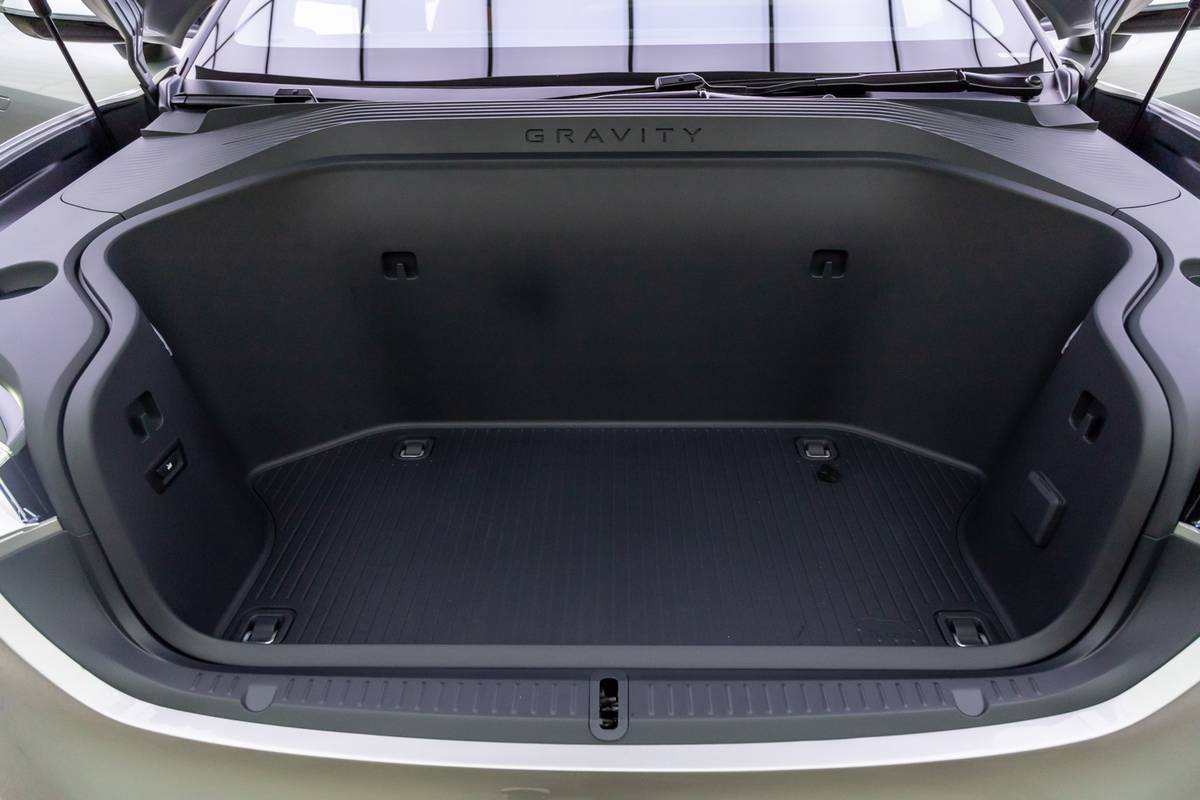
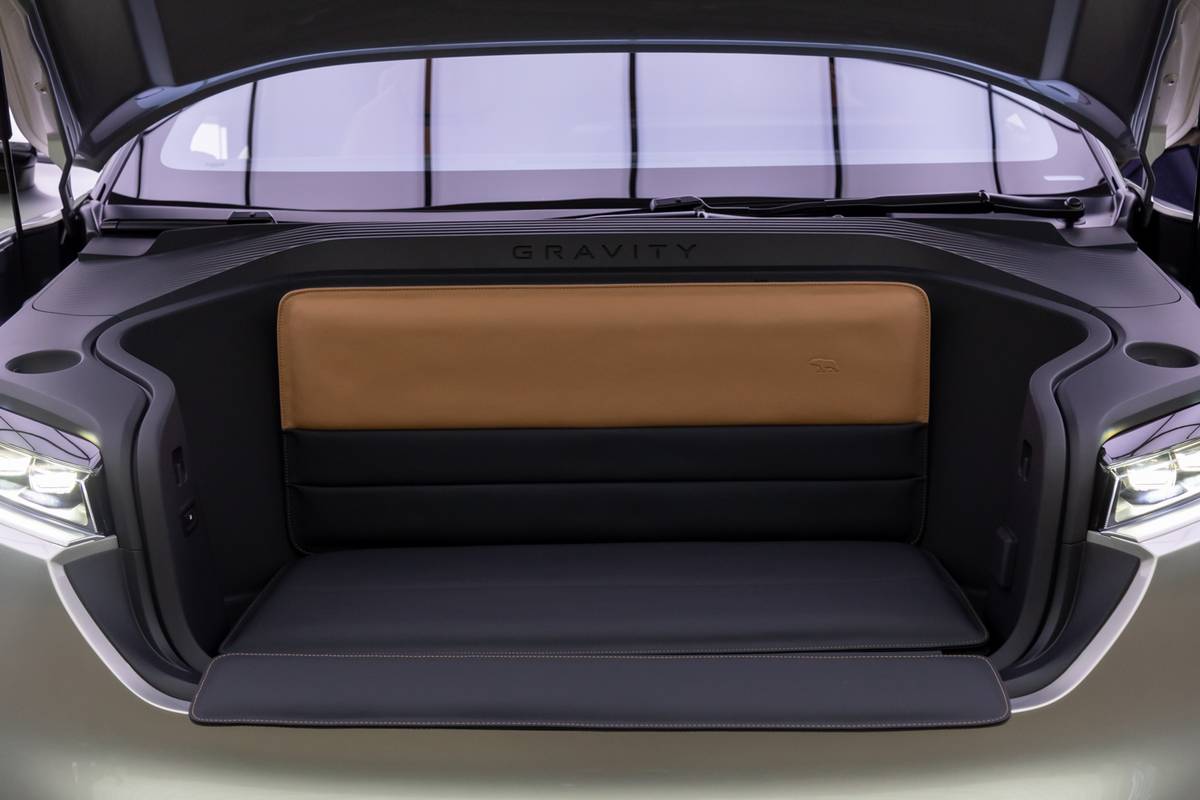
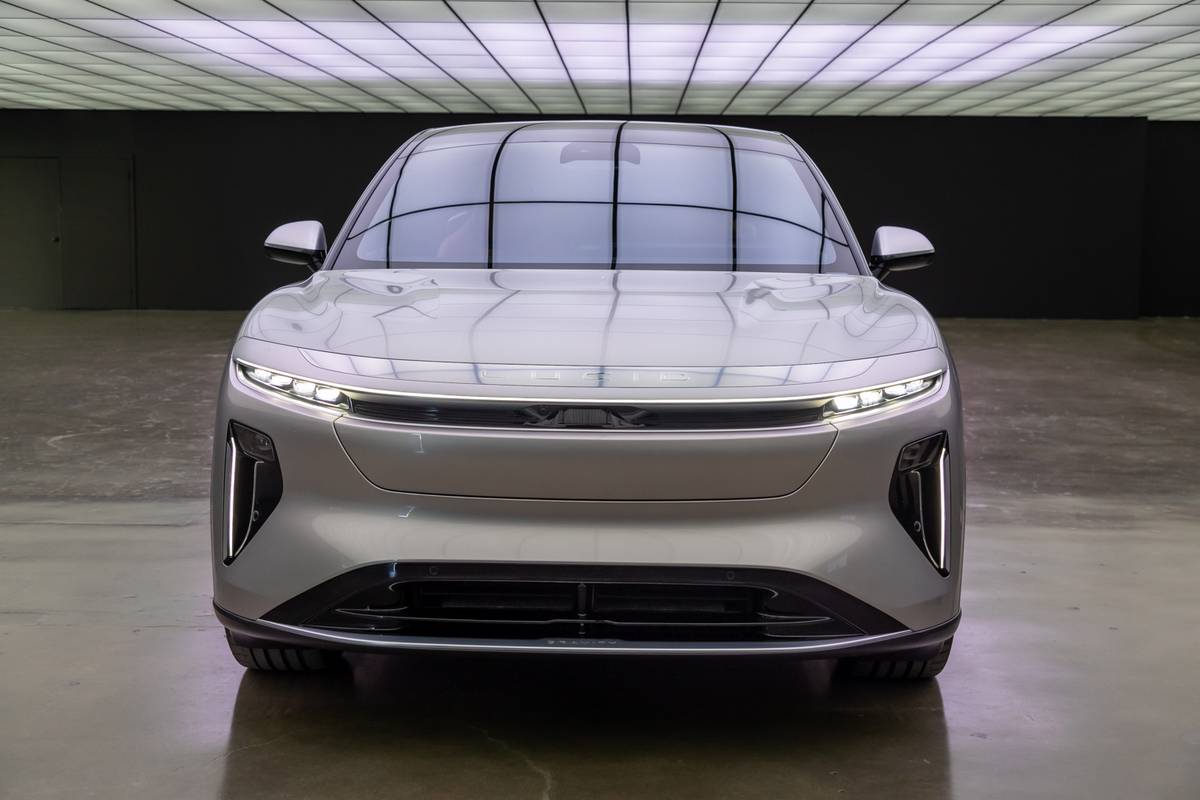
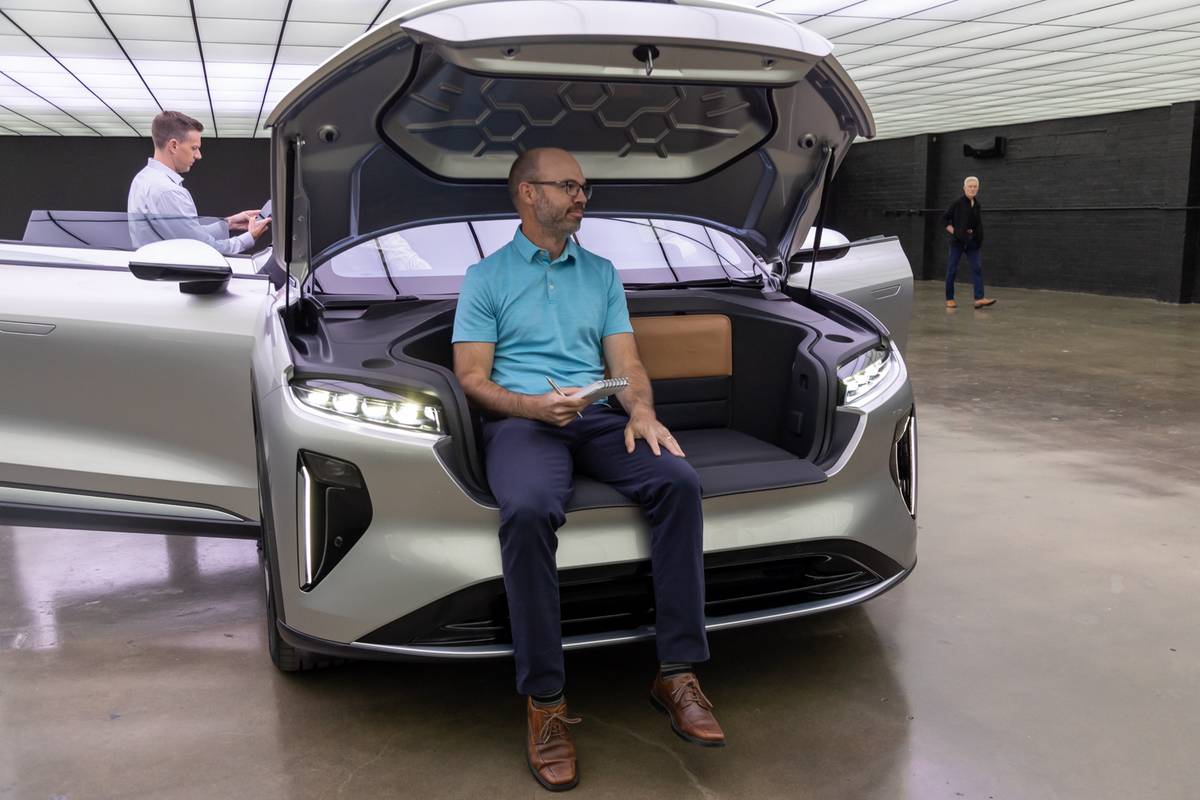
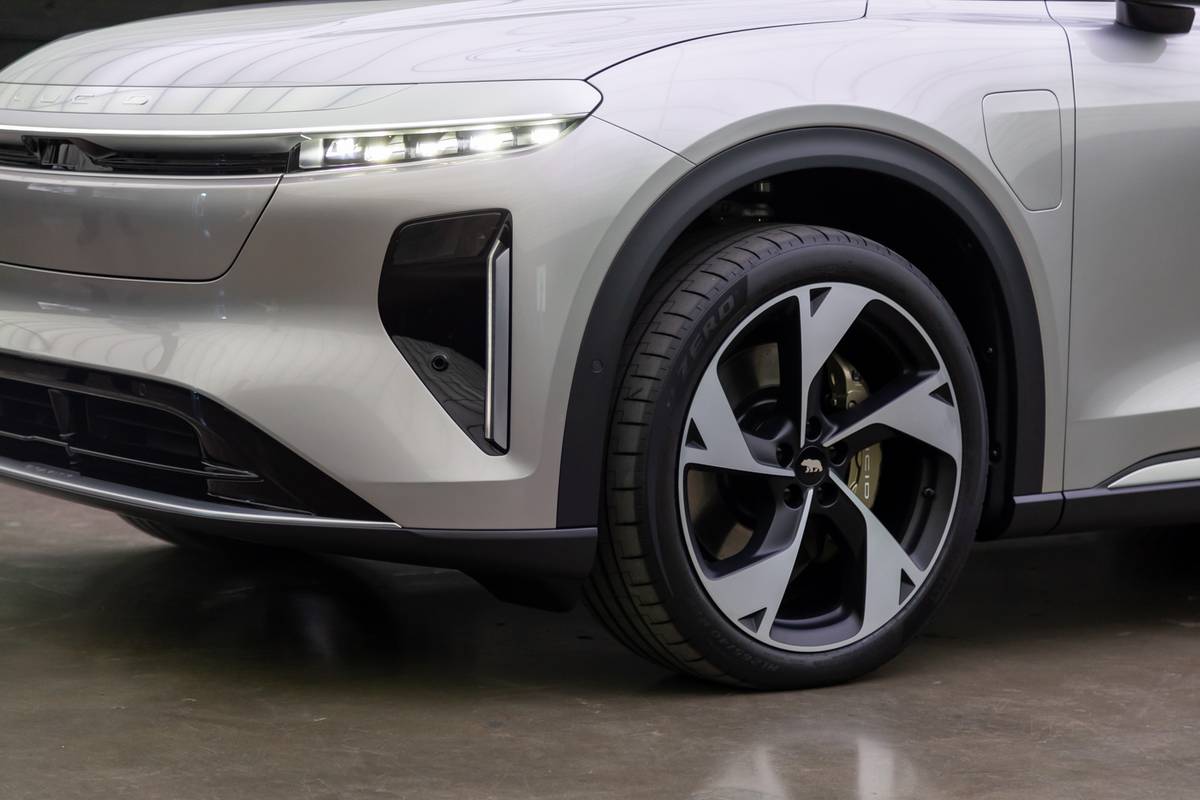
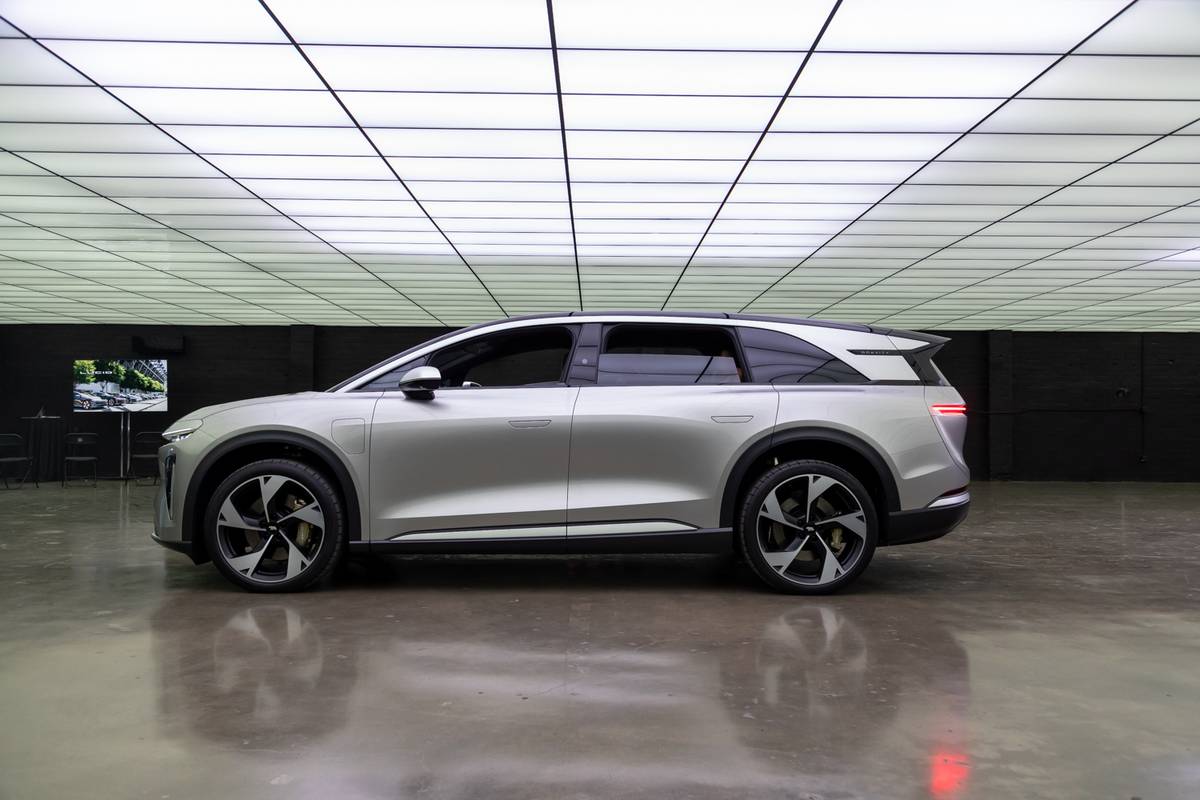
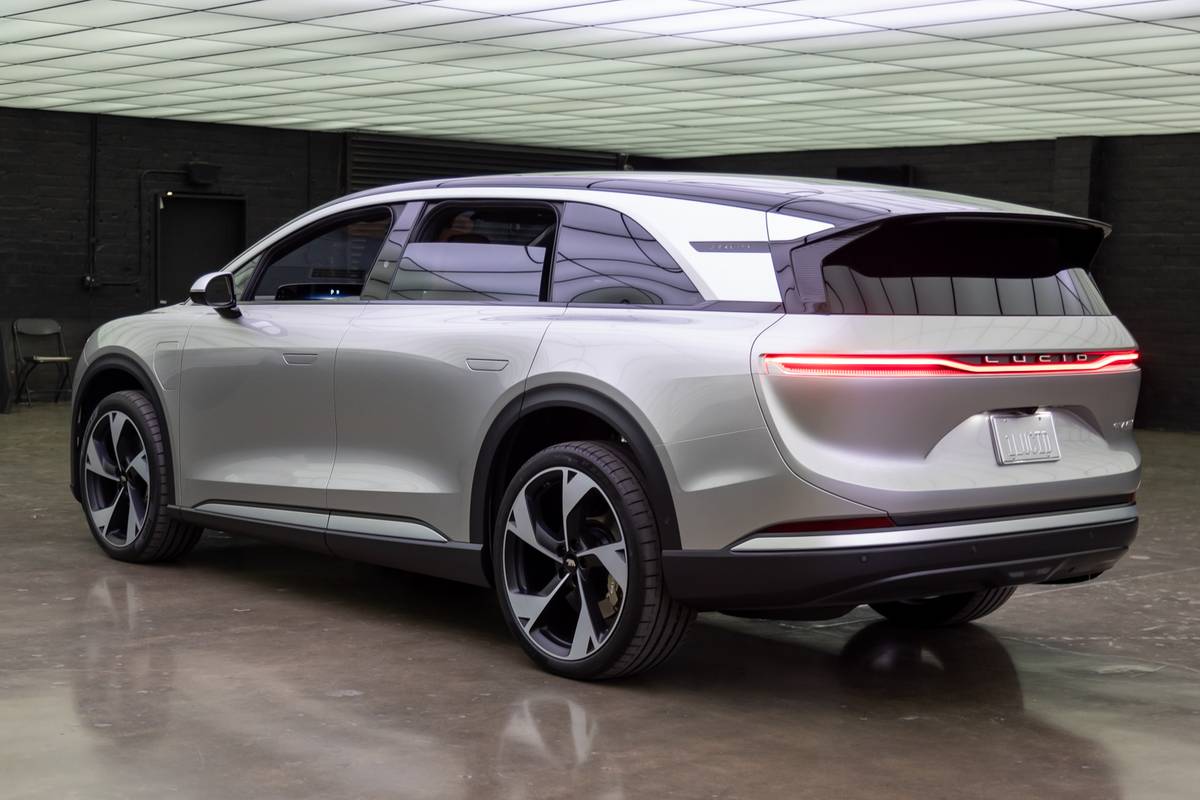

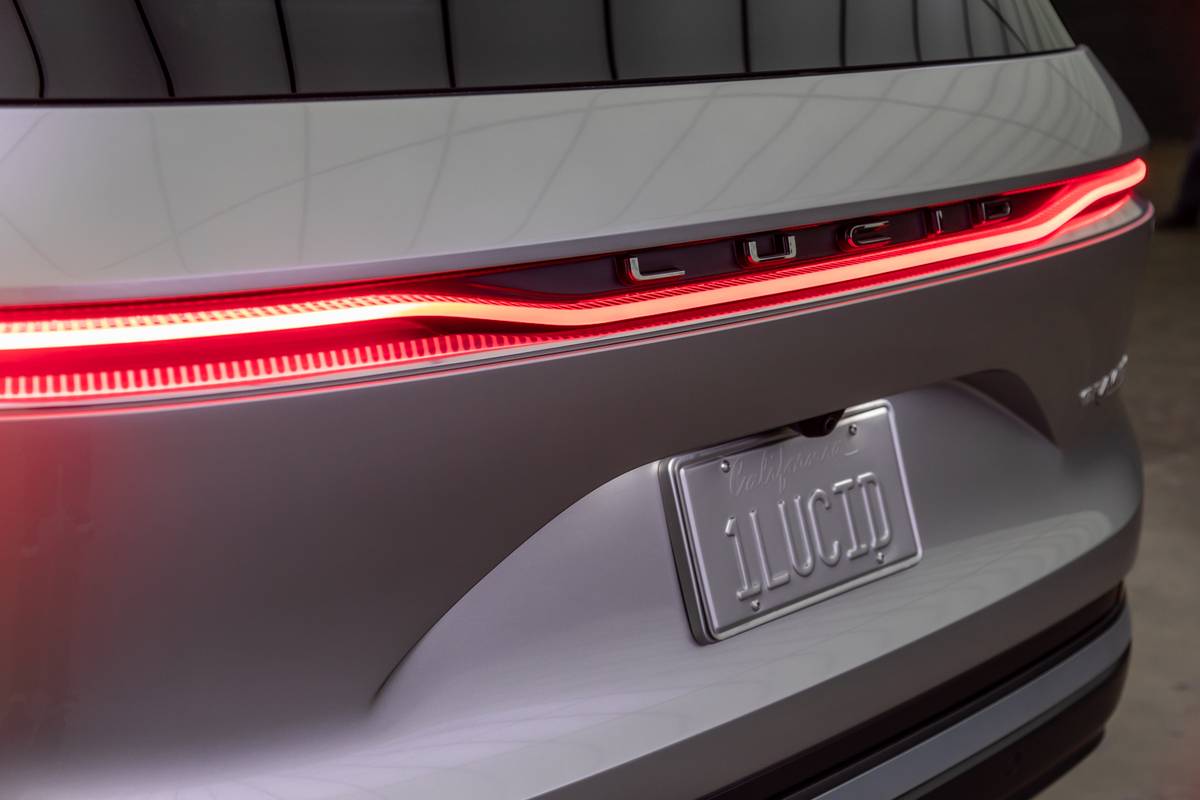









Lifting the hood reveals a sizable front trunk, and a cutout in its front portion allows the space to double as a seating area for two with Lucid’s optional seat cushions — when the SUV is stationary, of course.
Related Video:
There’s a family resemblance at the back of the Gravity, too, as it has a wide light bar just like the Air that wraps around the rear corners of the SUV. Above the beltline, however, the whole look changes: Rather than the Air’s four-door coupe shape with a rear window that ends at a short trunk lid, the Gravity has an upright rear window topped by an overhanging portion of the roof that creates a rear spoiler. As SUVs go, however, the Gravity is still very sleek-looking, and Lucid expects it to have a drag coefficient of less than 0.24.
Surrounded in Luxury and Tech
If you’ve been in an Air, the Gravity’s interior will look familiar, but Lucid has made some significant changes to evolve the look and how you interact with the SUV. The driver faces a 34-inch organic light-emitting diode screen that sweeps across the left and center areas of the dashboard, and it’s positioned above the steering wheel so your view of the screen isn’t blocked by the wheel, which adopts a bit of a rectangular shape. There’s another screen in the center of the dashboard for the infotainment system, and it includes a strip of physical buttons on its bottom edge for things like temperature and fan speed that are useful to have close at hand.
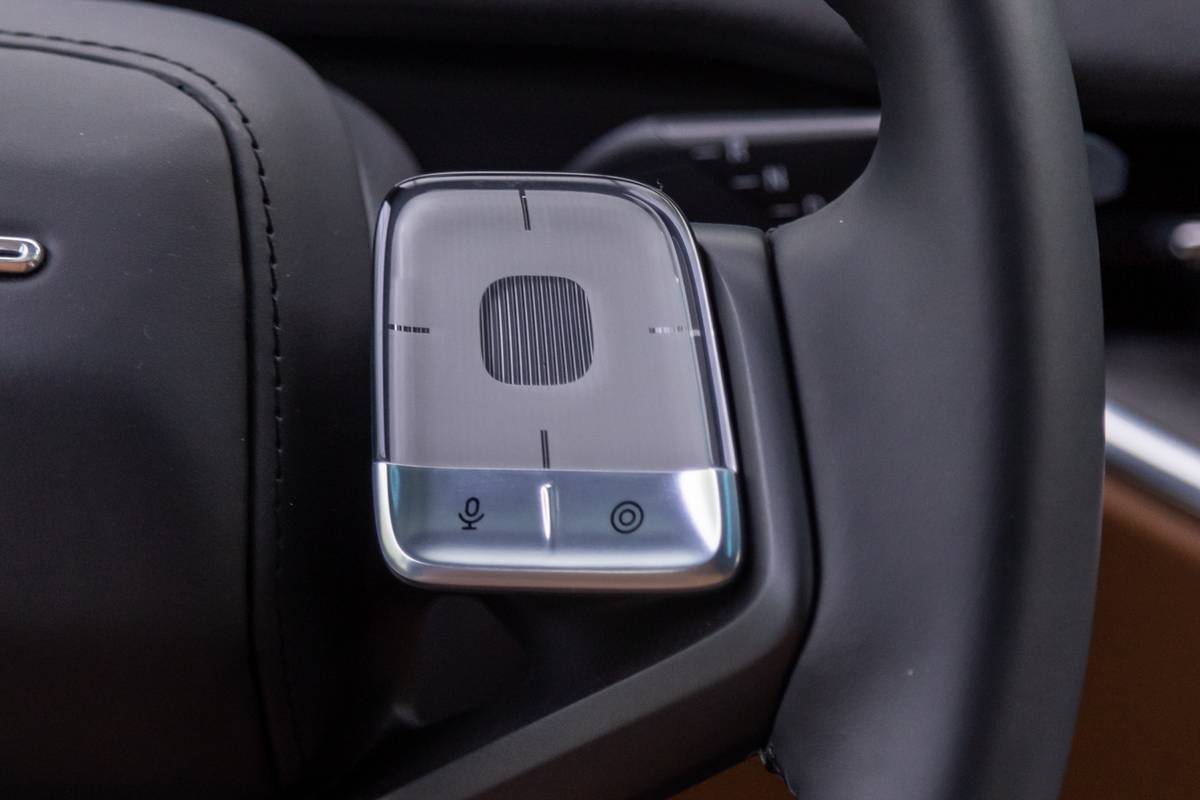
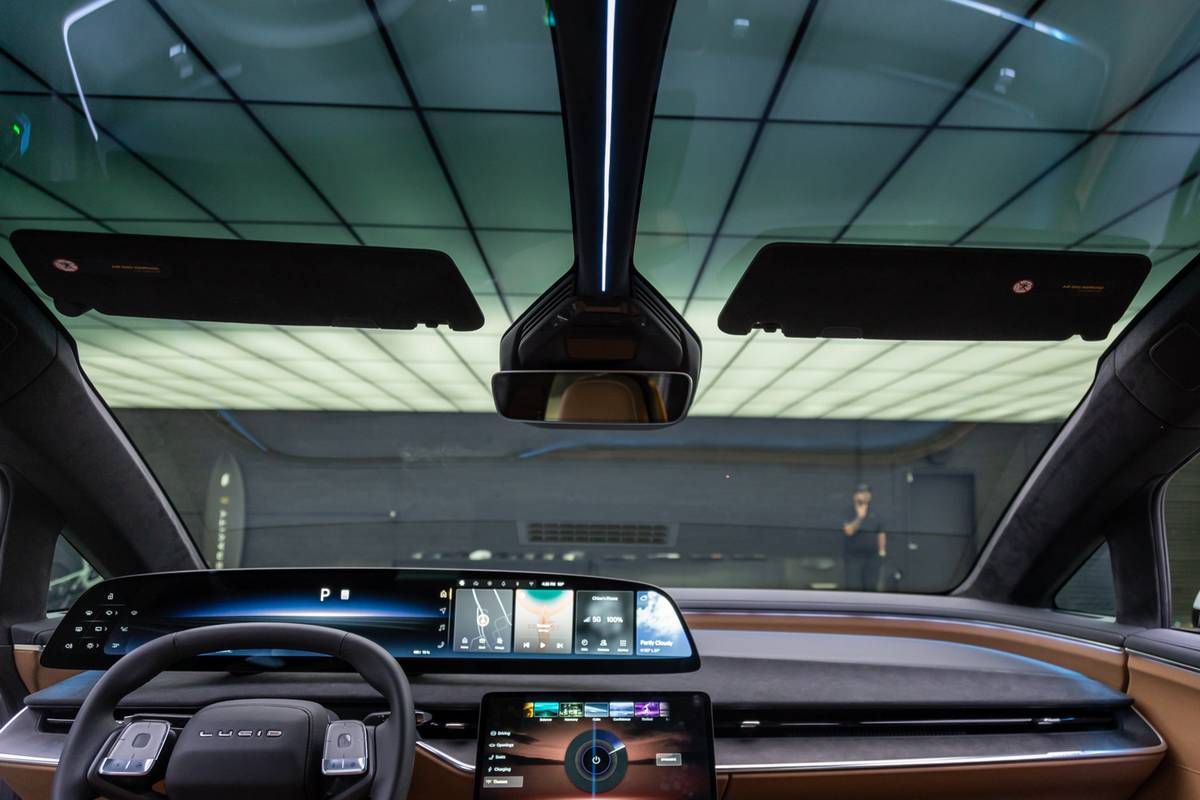
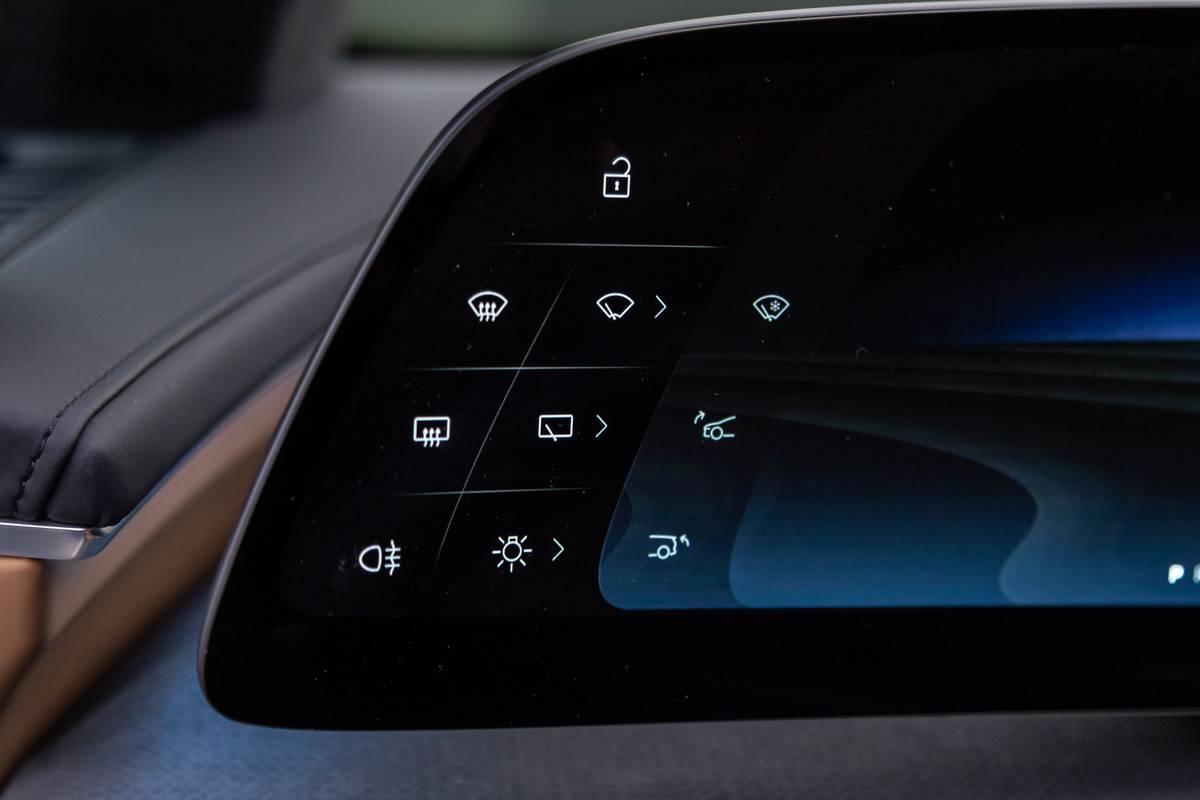
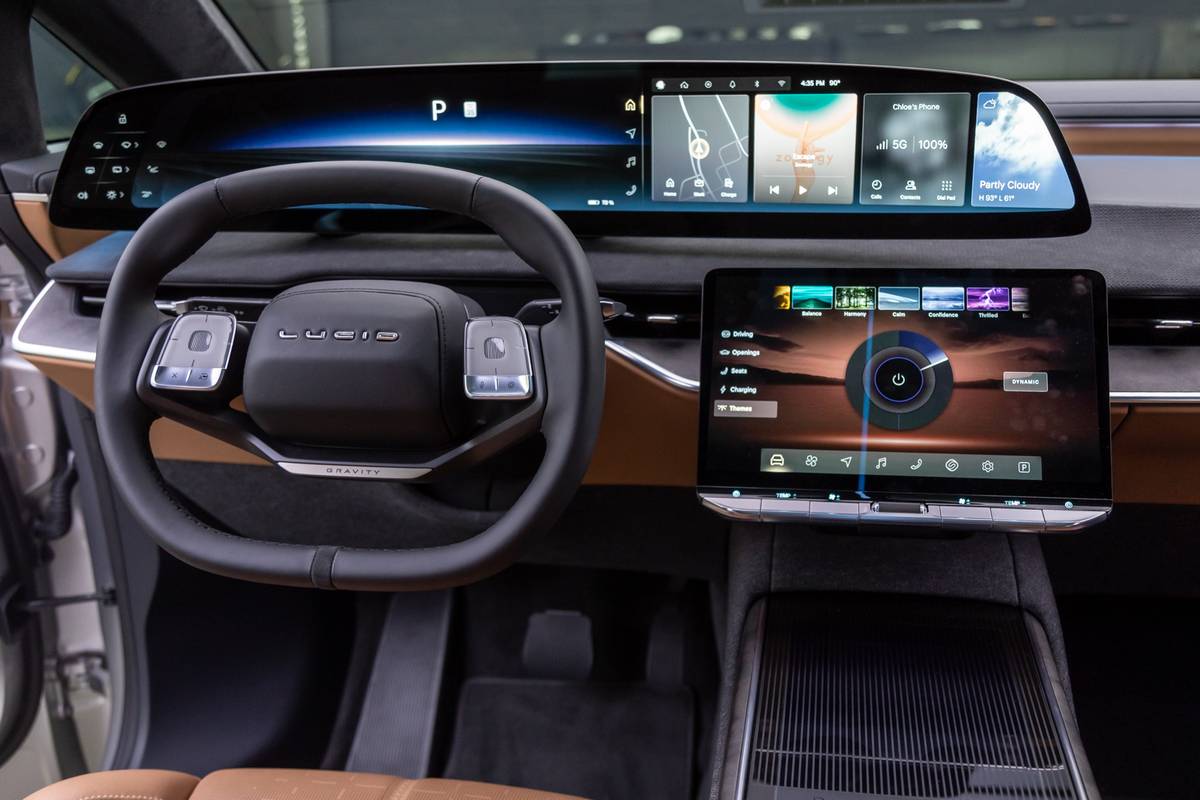
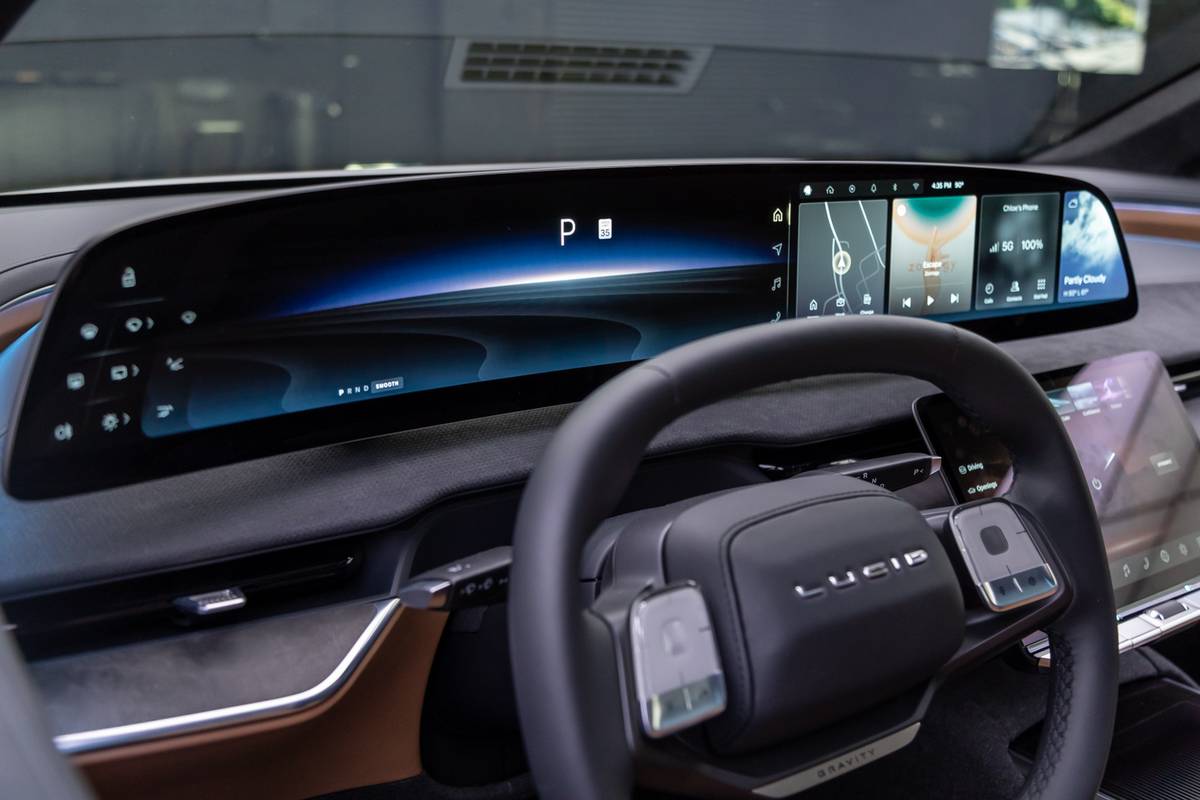
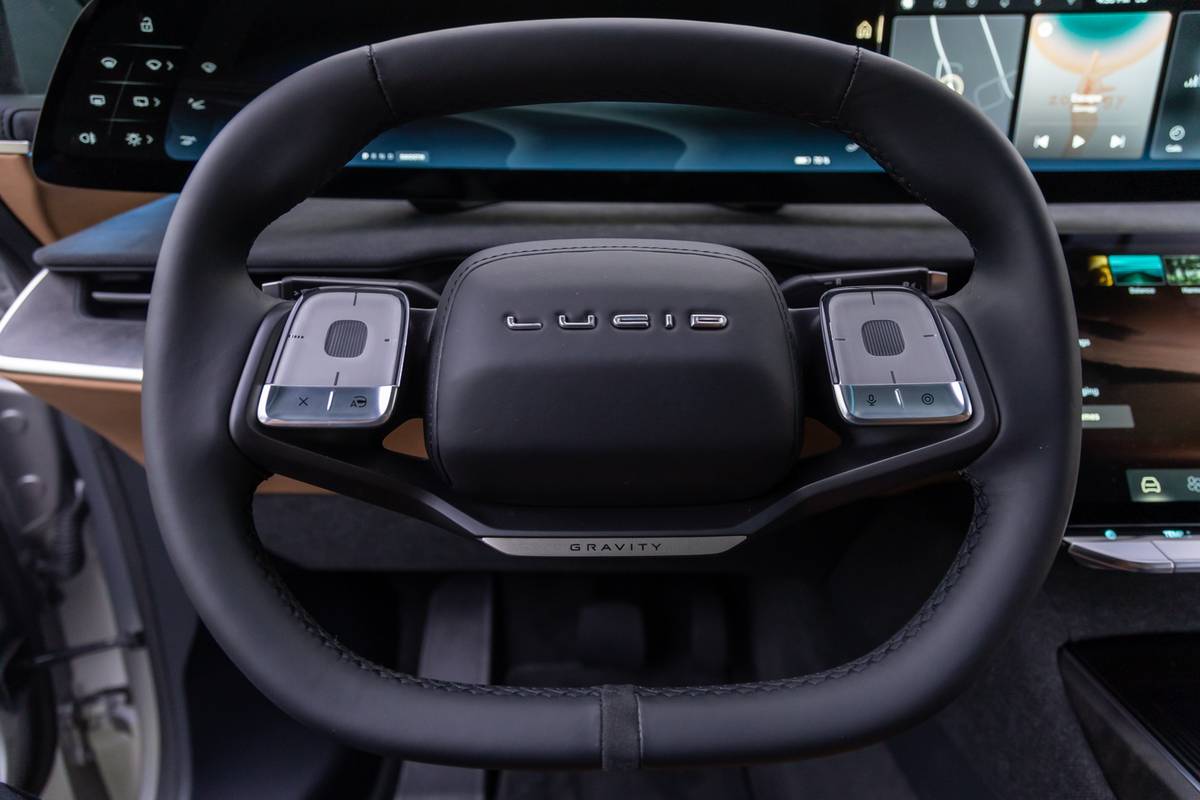
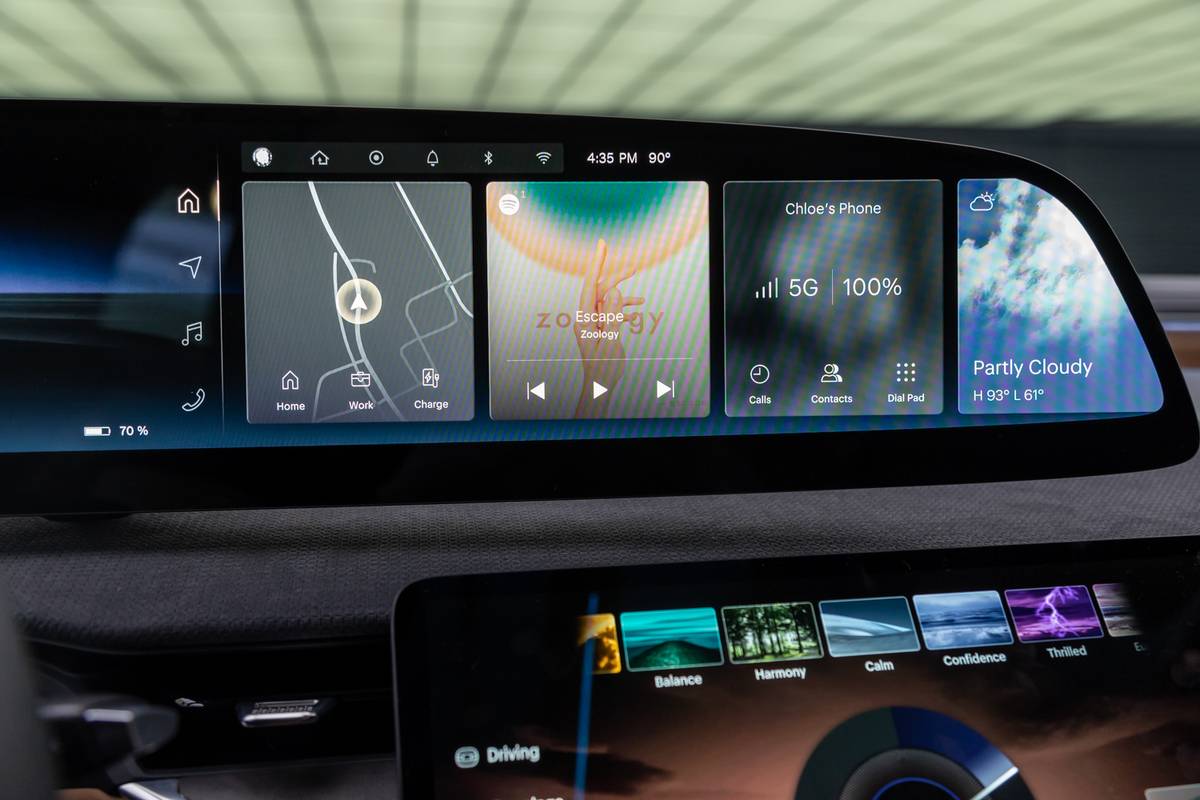
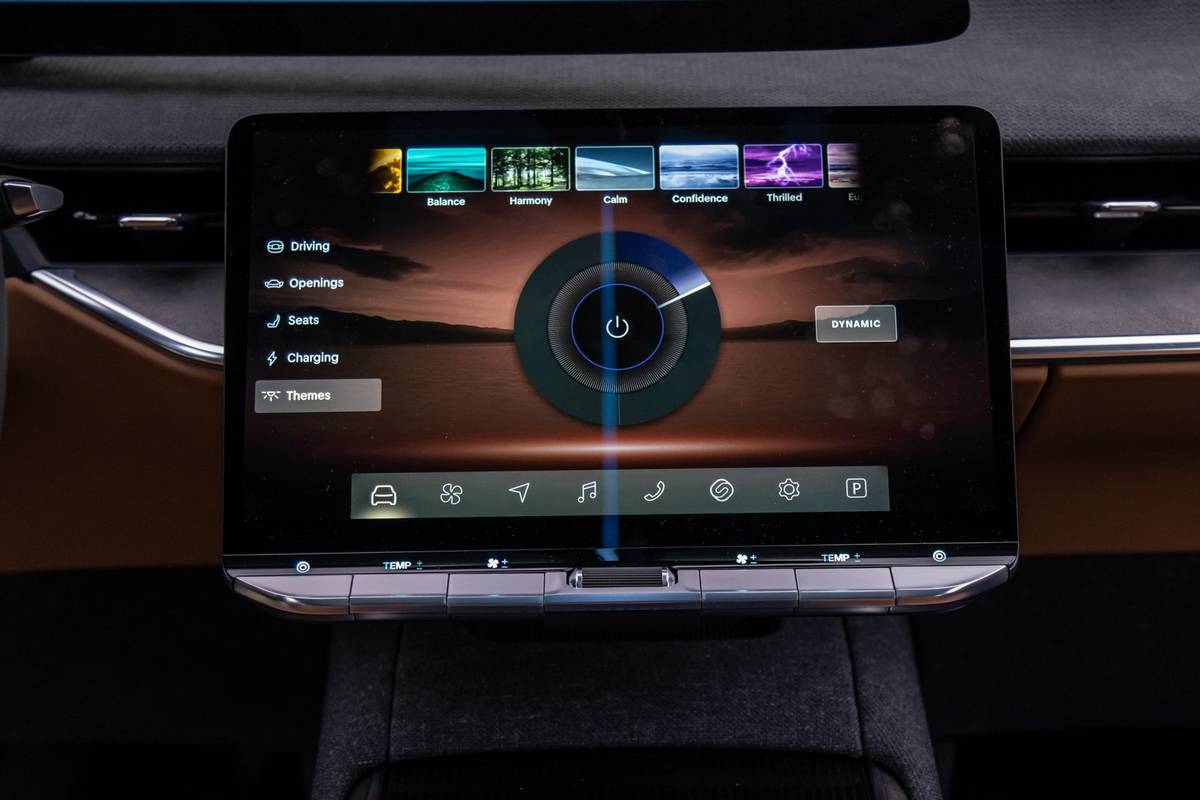
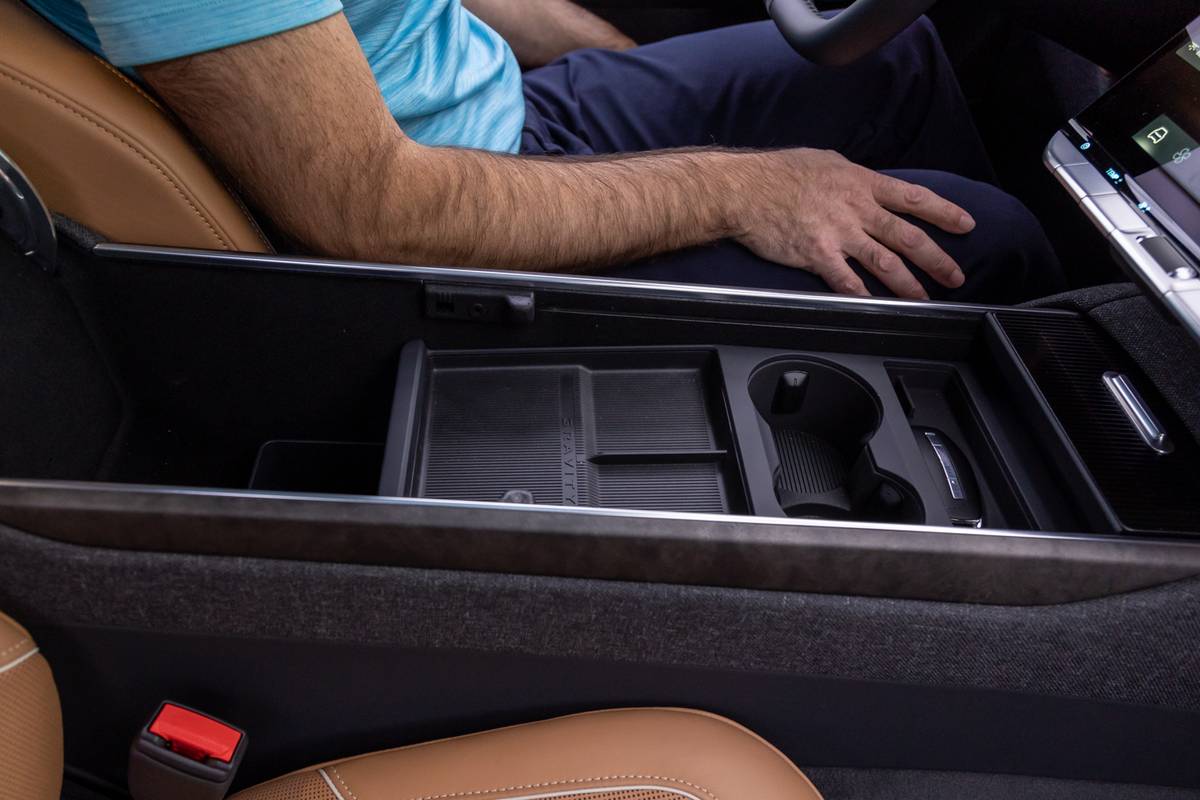
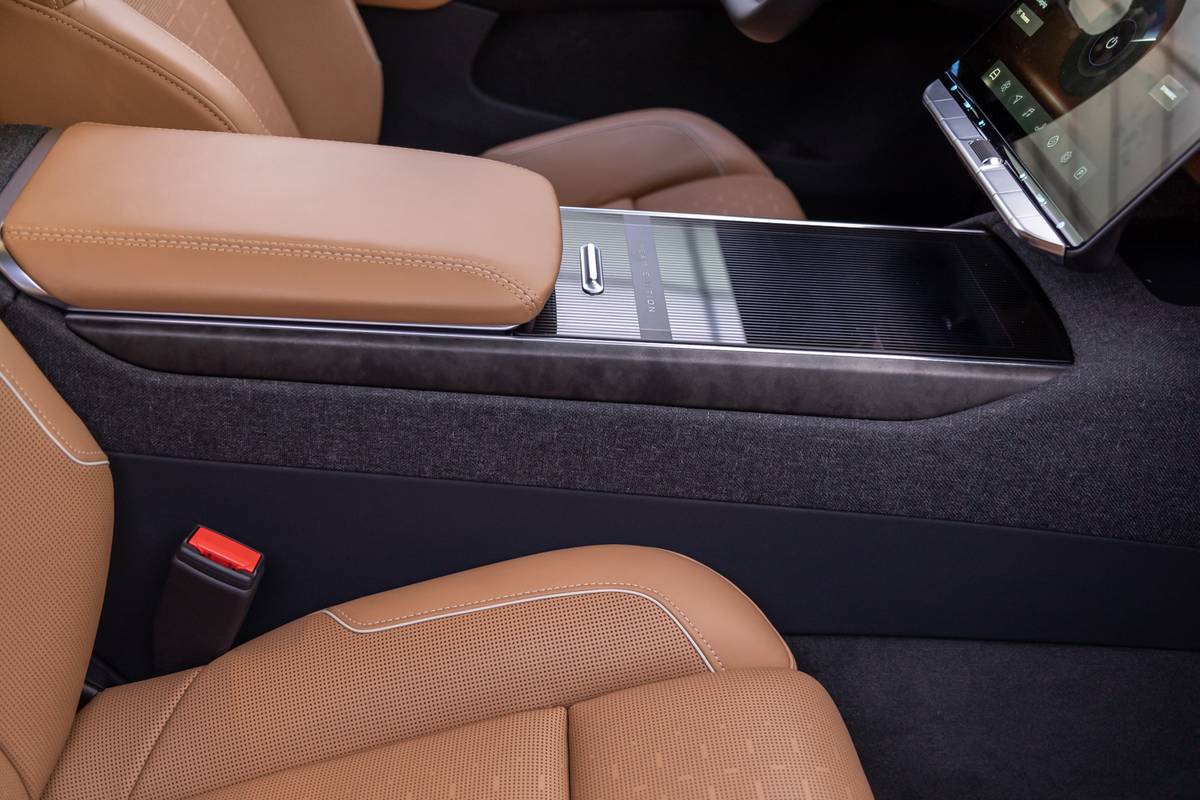










On that steering rectangle, however, Lucid has added two touch-sensitive pads near where your hands would sit that are designed to let you swipe and press to control things. We weren’t able to use them during our time with the Gravity, but non-screen, touch-based controls can sometimes be finicky in everyday use, so we’re interested to see how well these ones work.
The Gravity that Lucid had on hand was a high-end Dream Edition finished in the Tahoe interior design scheme, which includes a mix of brown leather upholstery, woven fabric and suede-style trim. The materials are all really nice and high-quality, and if you’d prefer an interior without leather, Lucid offers that, too. There’s a large console between the front bucket seats that’s configurable depending on whether you need space for large items or want to keep smaller things organized.
Space for Your Crew
The second row is comfortable and roomy with good space for adults, and the bottom of the seat is set high enough off the floor that most passengers should have good thigh support. The Gravity we saw was equipped with convenience trays that fold out from the backs of the front seats, similar to airplane tray tables, and they’re designed to hold personal electronics like a tablet.
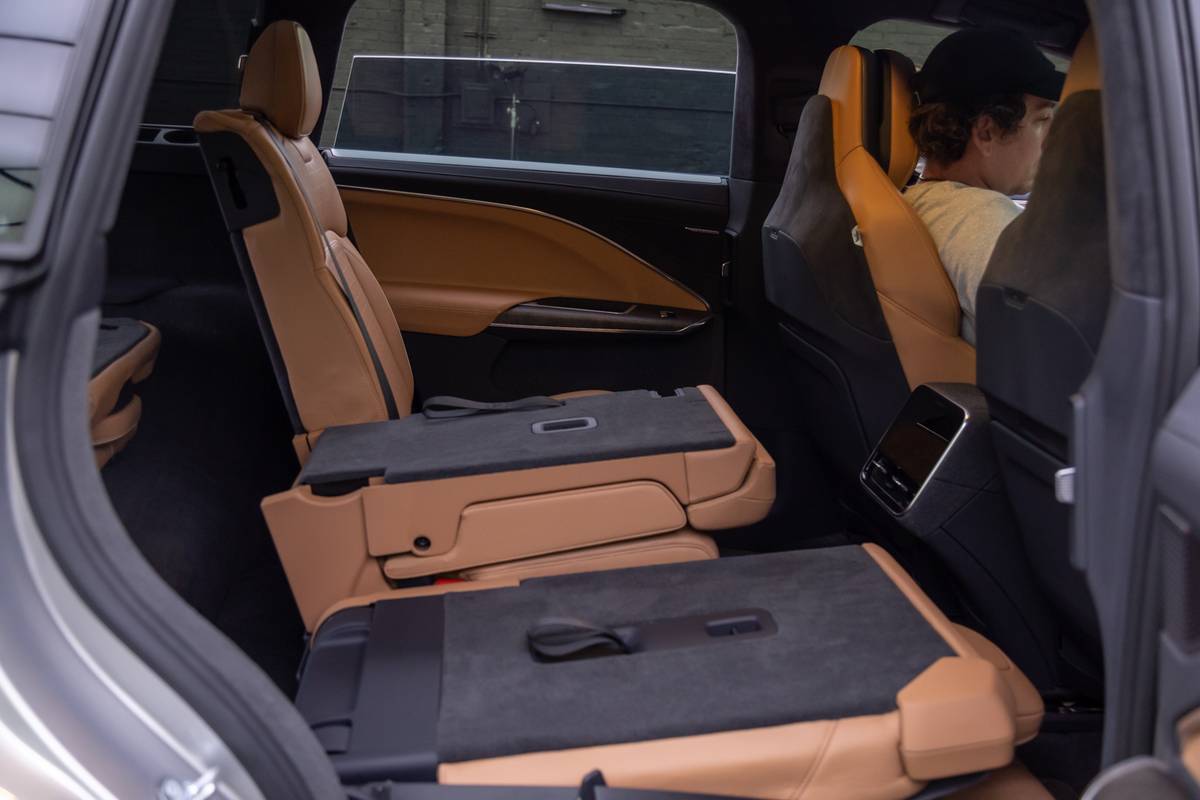
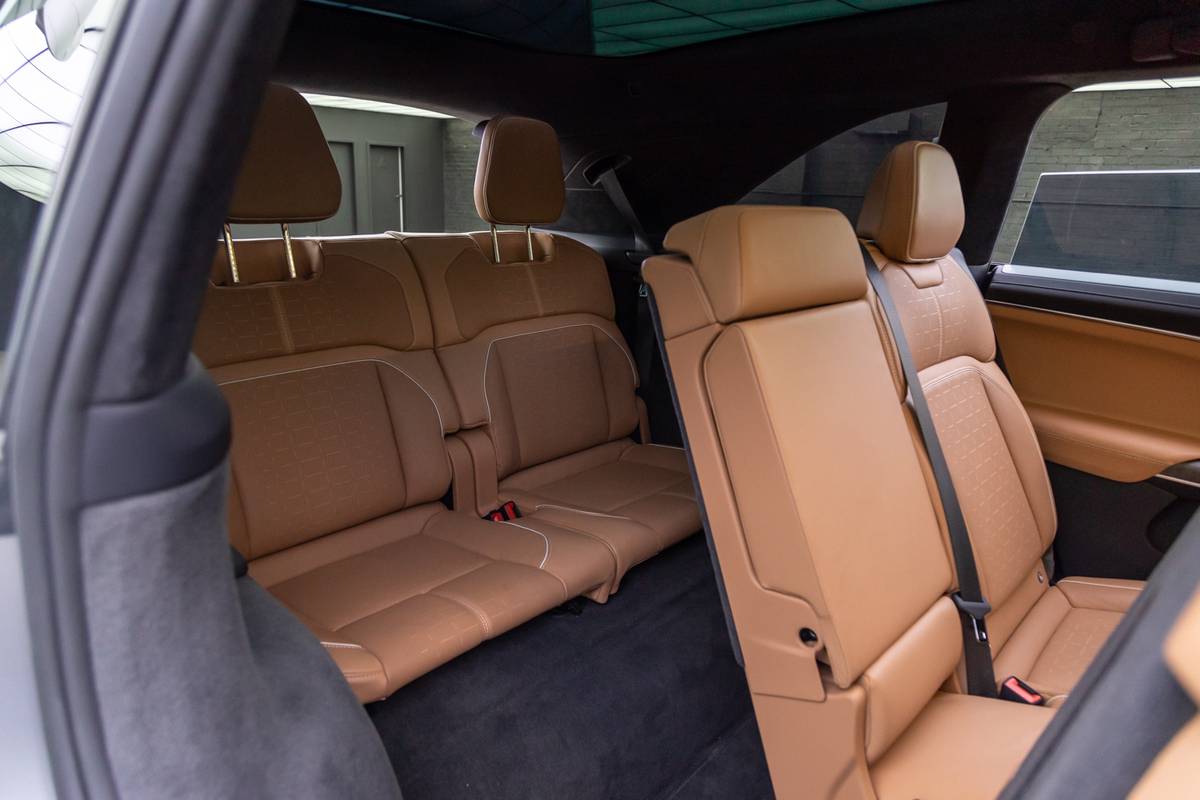
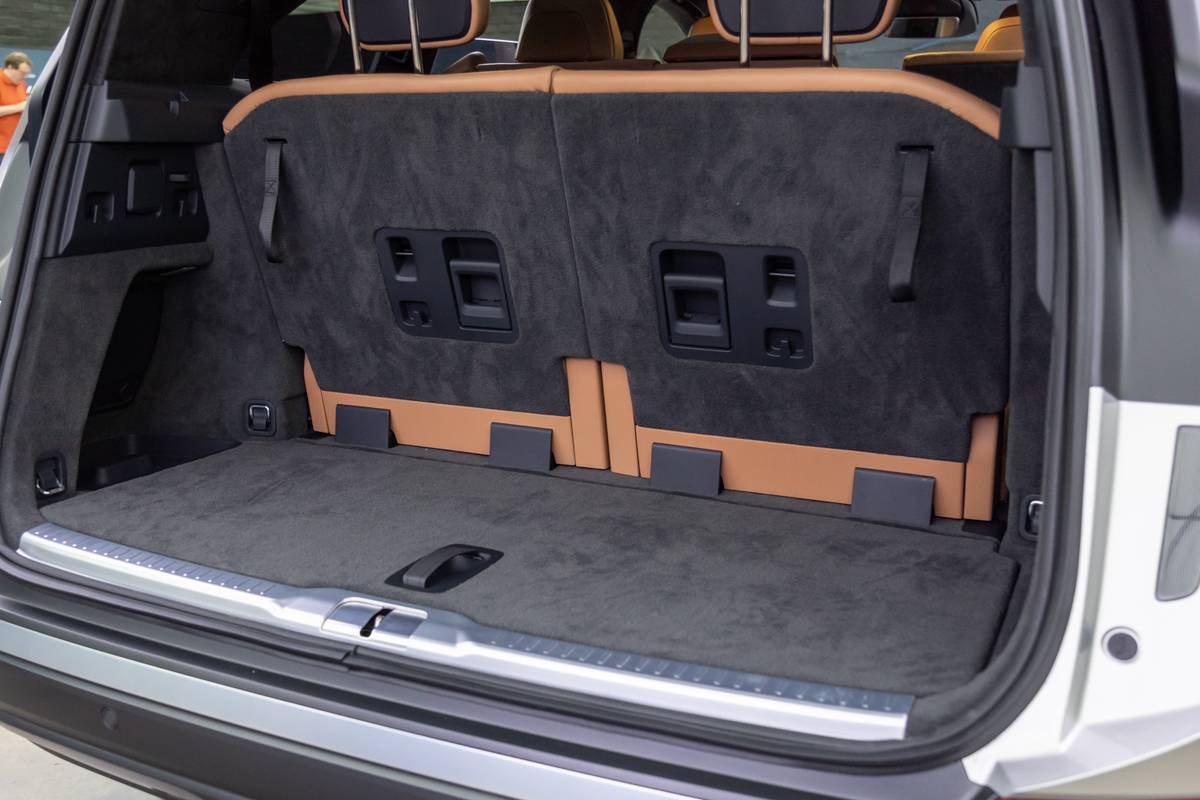
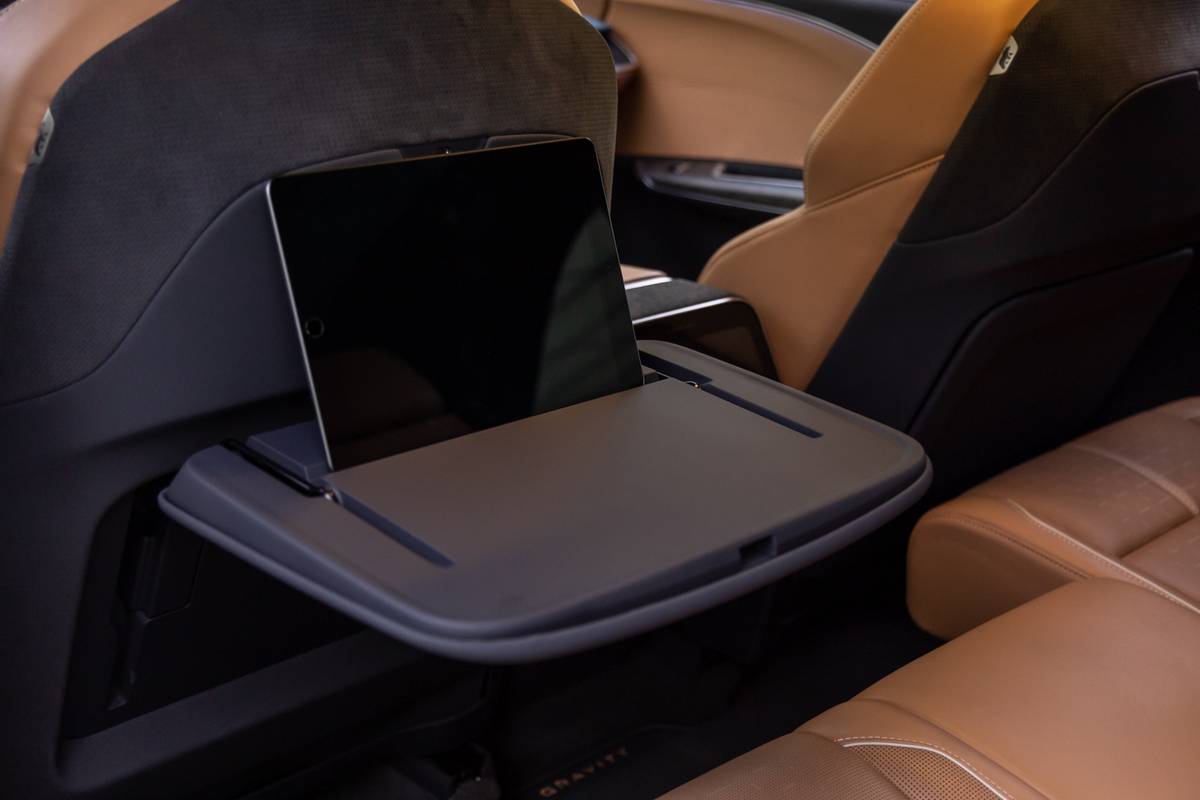
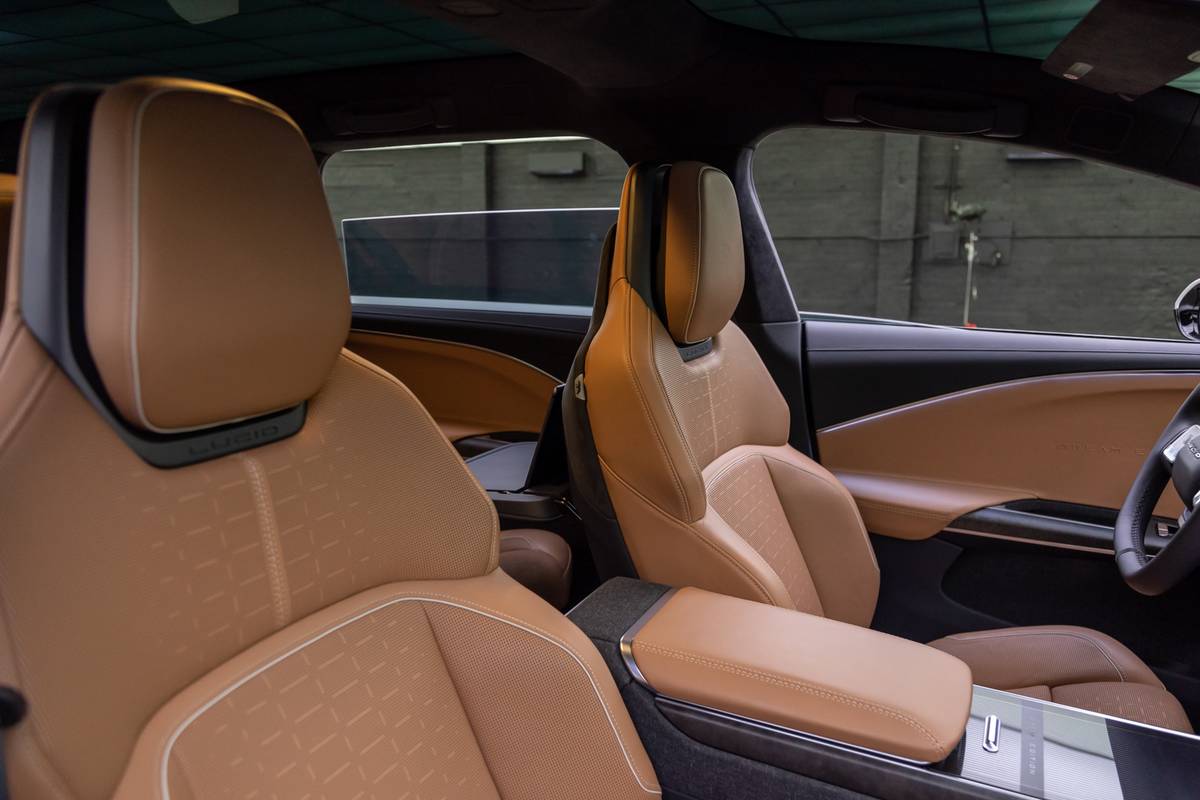
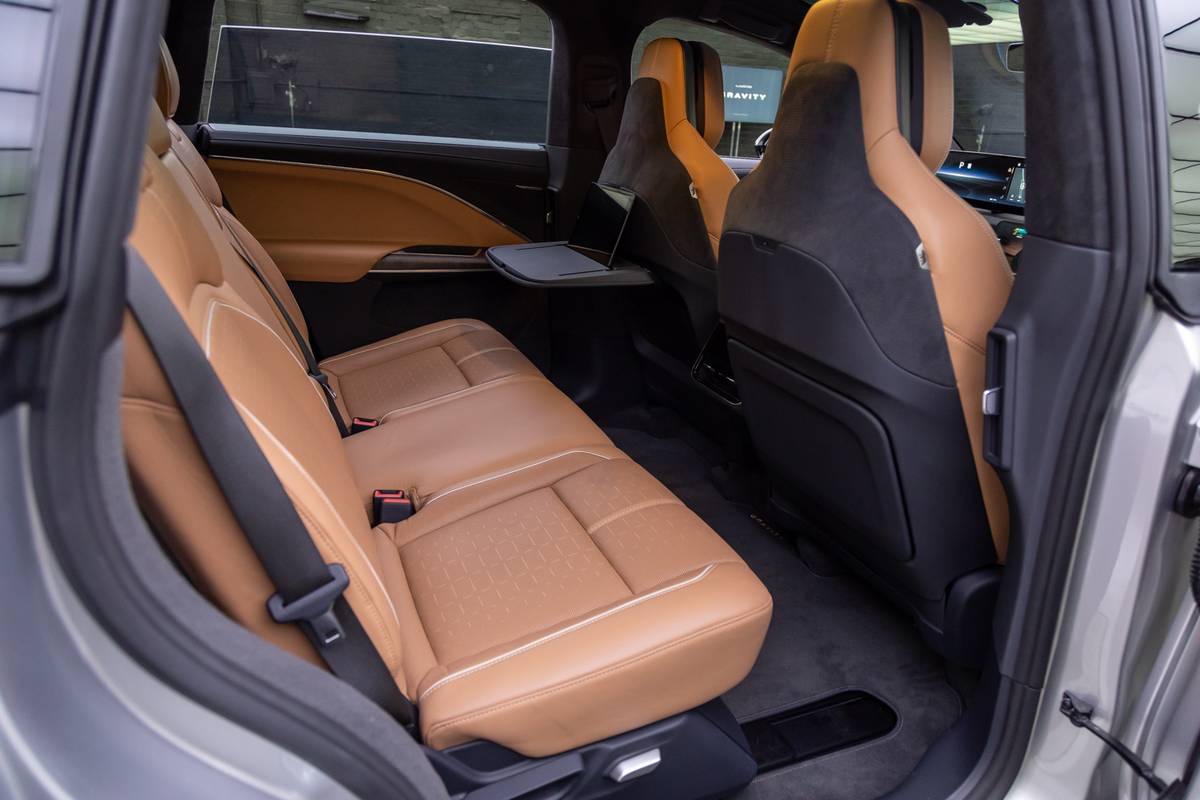
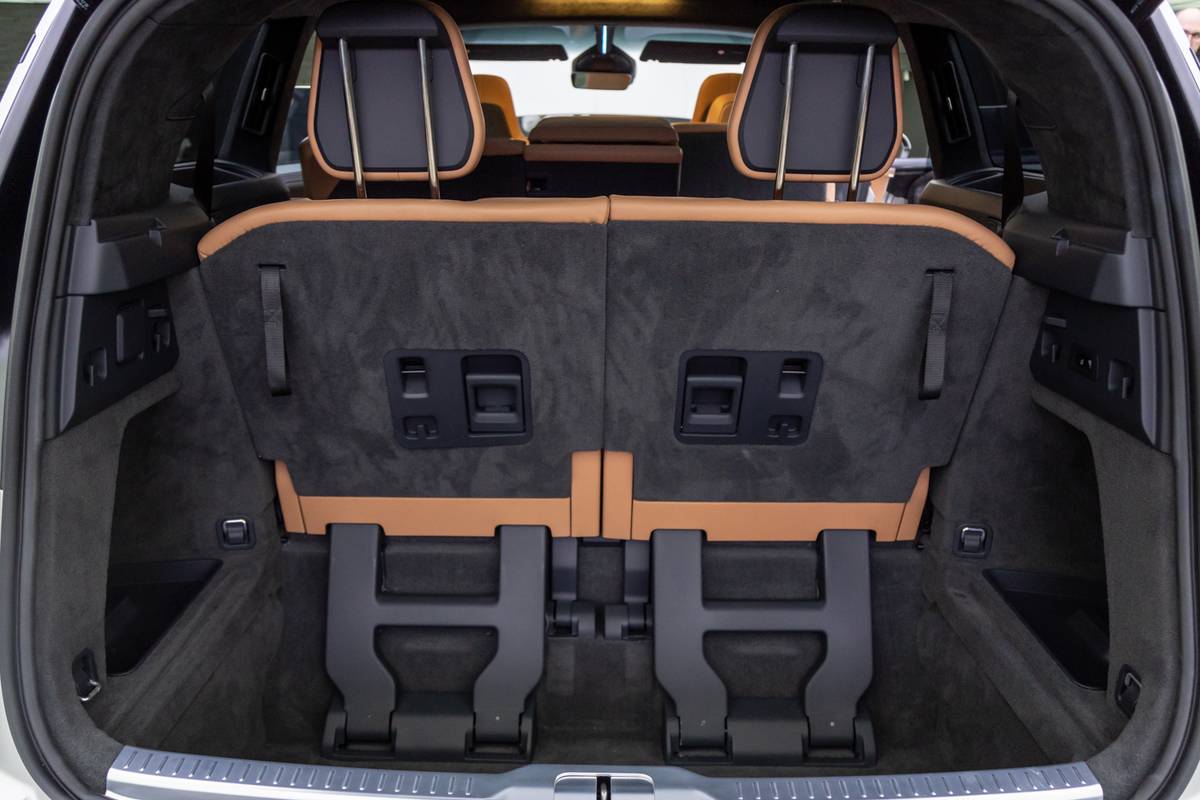
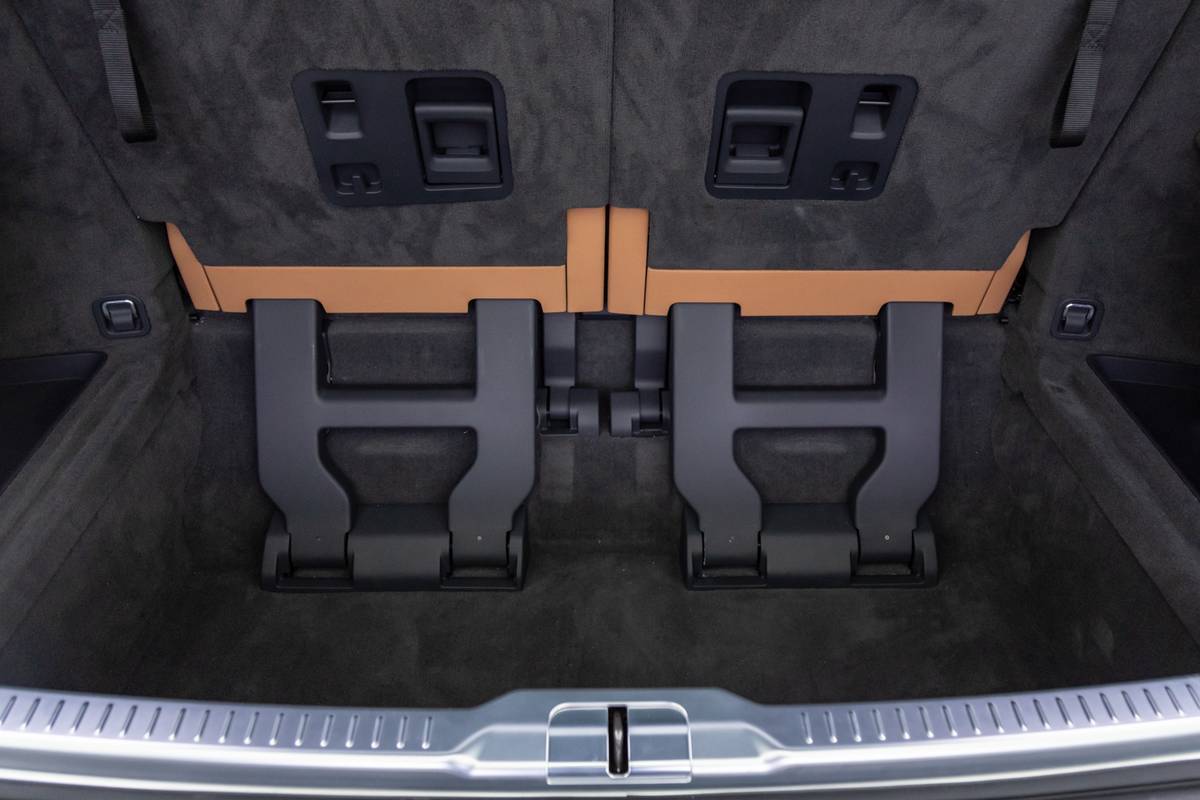








Third-row space, which is very limited in some mid-size luxury SUVs, is quite good in the Gravity. There’s plenty of headroom thanks in part to the glass roof, and though legroom is a bit limited for taller adults, the second row can slide to give third-row passengers a bit more. This area of the Gravity will most likely be the domain of children, however, and it should be plenty roomy for them.
The space-efficiency story continues in the cargo area, as the Gravity has a reasonable amount of room behind the third row. When the third row is up, there’s also a deep well below the cargo floor for extra storage. (The third-row seat folds into the well, minivan-style, when not in use.) A low liftover height for the cargo area should make loading luggage easier, and the height-adjustable air suspension lets you make it even lower.
More From Cars.com:
- Clear Pull: 2025 Lucid Gravity SUV Debuts
- Lucid Jumps on the Tesla EV Charging Standard Bandwagon
- Electric Cars With the Longest Range
- Lucid Air Grand Touring Video Review: Sedan or Spaceship? Why Not Both?
- 2022 Lucid Air Quick Spin: Astonishingly Good
Tech Tricks
Lucid said its customers are interested in personal wellness, and the automaker has come up with a way to use various elements of the Gravity to that end. The Lucid Sanctuary and Lucid Spaces features use the screens, ambient lighting, sound system and seat functions to simulate different environments like Muir Woods National Monument and Joshua Tree National Park through an immersive experience. There’s also a mindfulness feature that includes things like guided breathing exercises, which could be especially useful if you live somewhere with awful traffic.
You could argue the Gravity should have been the first EV from Lucid given the popularity of the SUV body style in the U.S., and with production not expected to start until late 2024, you’re going to have to wait awhile if you’re interested in getting one. But from our brief time with it, the Gravity definitely seems worth the wait if you’re considering a luxury EV. Its combination of style, space, luxury and tech — at an expected starting price of less than $80,000 — is compelling.
Cars.com’s Editorial department is your source for automotive news and reviews. In line with Cars.com’s long-standing ethics policy, editors and reviewers don’t accept gifts or free trips from automakers. The Editorial department is independent of Cars.com’s advertising, sales and sponsored content departments.

Mike Hanley has more than 20 years of experience reporting on the auto industry. His primary focus is new vehicles, and he's currently a Senior Road Test Editor overseeing expert car reviews and comparison tests. He previously managed Editorial content in the Cars.com Research section.
Featured stories
